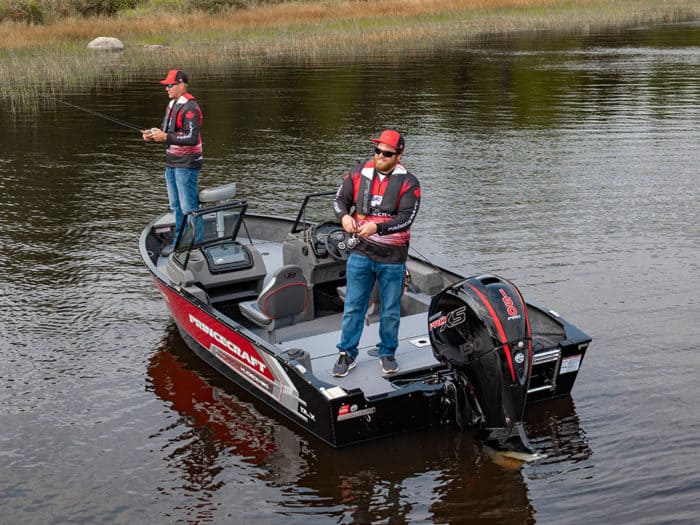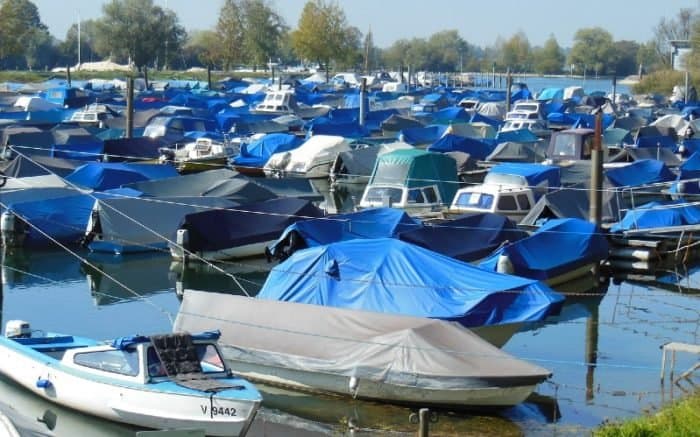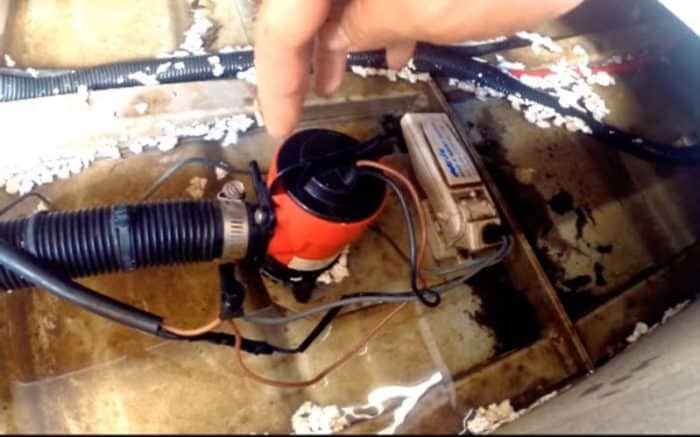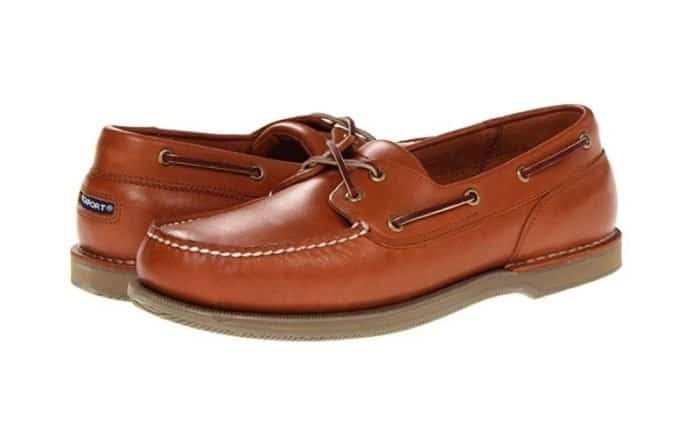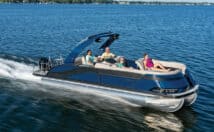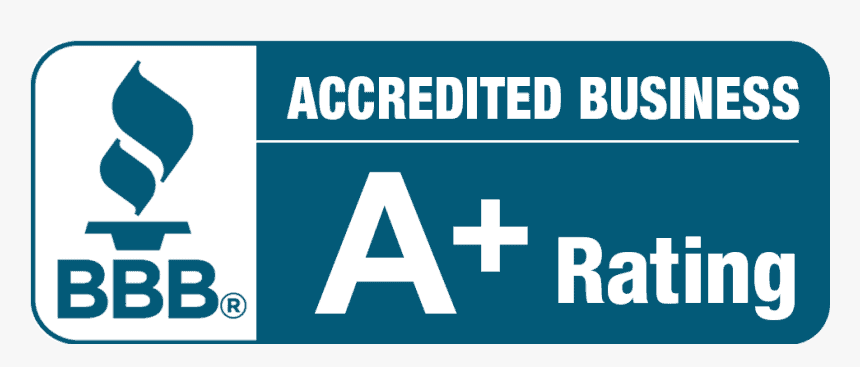Boating Regulations by State Boating Education Requirements
Nearly every state now requires boaters to have some form of formal boat safety education. This typically comes in the form of a test administered by the National Association of State Boating Law Administrators or NASBLA. The regulations can vary widely from state to state so make sure you check your local laws to ensure you are in compliance. Upon completion of your boat safety test, which can take up to several hours, you will received a card indicating that you have completed the requirements. The Coast Guard or other officials can and will ask to see this card to prove the course has been completed. In some states if you cannot produce this card you can face fines that reach into the hundreds of dollars. As you’ll see, these courses are required for adults and children alike with very few exceptions.
When traveling between states most states will allow you to use your out-of-state certification if you wish to boat in their waters. Again, you must have documentation on you to show as proof when asked. And always check the regulations as this reciprocity, which is the term used to indicate the allowance of one state’s certification in another state, is not always guaranteed. Several states require you to take a course in that state before boating, in particular when using personal watercraft. When in doubt, check with the governing body of the state in which you plan to go boating. You can find contact information here.
Remember that, in many states, children are required to have certification but they may also be required to have adult supervision as well. Again, this can vary widely based on state and the ages of those involved so make sure you’re checking ahead of time to avoid any potential hassles. Keep an eye on dates as well. Some states are implementing laws in stages that won’t fully take effect until the year 2025 or later. As each year passes, the details of the laws regarding who requires certification may change. Typically this pushes back the age of those required to be certified with the ultimate goal being every boater on the water requiring proof they have completed the education course by the end of the given timeframe. Basically that means if you don’t require complete of the boat safety education course today in New York State, for instance, you may require it by this time next year.
| State Boating Laws |
Boating Education Regulations | Reciprocity– accepts boating safety certificates from other states and/or NASBLA-approved courses. |
| Alabama | Minimum age to operate 12. Must be accompanied by someone 21 or over if under 14. Boating license required – proctored exam required to obtain license. | Non-residents may operate up to 45 days without a license. |
| Alaska | No mandatory boating education requirements. | N/A |
| Arizona | No mandatory boating education requirements. | N/A |
| Arkansas | No mandatory boating education requirements. | N/A |
| California | No mandatory boating education laws. Minimum age to operate is 16. By 2025, all boat operators will be required to have a California Boater Card. As of January 1, 2022, all persons 45 or younger require one. By January 2023 all boaters 50 or younger will need one. By January 1 2024 it will be all boaters 60 years old and younger. Lifetime card fee is $10. | Yes up to 60 days. |
| Colorado | Colorado residents – age 14-15 – who operate PWCs required to complete boating safety course. Home study is not accepted for this age group. No one under 14 may operate a motorboat including a PWC. | Yes |
| Connecticut | All operators of vessels registered in, or who own property in, CT must successfully complete an approved boating course or pass the CT challenge exam. PWC operators must take proctored, state-approved PWC classroom course regardless of residency. Other vessel operators may take the CT challenge exam. Sailboats over 19.5 feet require certification. | No |
| Delaware | Delaware residents born after 1/1/78 must complete an 8 hour boating course. | Yes |
| District of Columbia | No one under 18 may operate a vehicle over 16 feet unless they have a boater education certificate or are under the supervision of someone over 18 who has that certification. | Yes |
| Florida | Florida residents born after 1/01/88 must have a boating education card to operate any vessel with a 10 hp or greater engine. | Yes |
| Georgia | Any Georgia residents born after January 1, 1998 must complete a NASBLA-approved boating safety course. Home study is accepted. | Yes |
| Guam | No mandatory boating education requirements. | N/A |
| Hawaii | All boaters operating a motorized vessel must have a taken a boating safety course. Operators under 16 must also be supervised by someone over 21 who has also completed the course. Operators of PWC, called “thrill craft” in Hawaii, must also complete a Recreational Thrill Craft Operators Safety Education Course. If the goal is to tow in-surf then the boater and surfer both must complete the Ocean Safety Educational Course from Windward Community College. | 60 days |
| Idaho | Boated education is required for boaters renting a PWC, both residents and out of state operators. Boating offenders convicted of OUI or aggravated BUI may require safety course certification. | Yes |
| Illinois | Illinois residents at least 12 years of age and less than 18 must successfully complete a NASBLA-approved boating course. They are required to be accompanied by an adult who has also completed the course. Home study is not accepted for this age group. No one under 10 may operate a vessel but those 10-12 can do so under supervision. | Yes |
| Indiana | All motorboat operators in Indiana must have a valid driver’s license to operate on all public waters. Operators who are at least 15 years of age and don’t have a driver’s license may operate a motor vessel if they take a NASBLA-approved Boater Education course and have an I.D. Card issued by the Bureau of Motor Vehicles (BMV). Home study is accepted. | Yes |
| Iowa | Boater education is required for any operator aged 12 through 17 who plan to operate a PWC or any vessel over 10 hp. | N/A |
| Kansas | Anyone born after January 1, 1989 must successfully complete a NASBLA-approved boating course prior to solo operation of a PWC, motorboat or sailboat. Home study is accepted. Operation of vessels is permitted without course completion provided operator is under direct and audible supervision of a certified adult. | Yes |
| Kentucky | Kentucky residents 12 to 18 must successfully complete a NASBLA-approved boating course. Home study is not accepted for this age group. Minimum age to operate over 10 hp is 12. | Yes |
| Louisiana | Anyone born after January 1, 1984 who wishes to operate a vessel above 10 hp must complete an approved boater safety education course. Those who don’t complete the course may only operate a vessel under supervision of an adult who is certified. An additional course is required to operate a personal watercraft and operators must be 16 or over. | N/A |
| Maine | Operators of a PWC between 16 and 18 must have completed an approved boating safety course. As of 2022, Maine is looking to enact laws which will require boater education, to take effect by the year 2027. The proposed law who require safety courses for anyone 16 and over operating a PWC, anyone 12 or over operating a vessel of over 25 hp and also anyone supervising a child operating a vessel. This law may not come into effect and is planned for 2027. | N/A |
| Maryland | Maryland residents born after 7/1/72 must successfully complete a NASBLA-approved boating course. | Yes |
| Massachusetts | Massachusetts residents 12 to 15 must successfully complete a NASBLA-approved boating course. Home study is not accepted for this age group. Operators of a PWC must be at least 16 years of age. Those between 16 and 18 require completion of a safety course. PWC operators over 18 do not require completion of the course. | Yes |
| Michigan | All non-resident PWC operators must have a boating safety certificate from a NASBLA approved course
Boaters born after June 30, 1996 and most PWC operators are required to complete a NASBLA approved course. Boaters under 12 can operate a vessel under 6 hp with no restrictions. They may operate a vessel 6 hp to 35 hp if they have completed a course and are under supervision by a person over 16 years of age. They may not operate a vessel over 35 hp. Anyone born before June 30, 1996 may operate a vessel with no restrictions. Boaters under 14 cannot operate a PWC. Boaters 14 – 15 must have completed a safety course and be accompanied by someone 21 or over or operating within 100 feet of that person. Anyone born after December 31, 1978 must have completed a safety course to operate a PWC. |
Yes |
| Minnesota | For those 12-17 years of age who want to obtain their Minnesota Watercraft Operator’s Permit – you need to go directly to the Minnesota Dept. of Natural Resources Website: http://www.dnr.state.mn.us/safety/boatwater/education.html to find out the course options available to you. |
Yes |
| Mississippi | Persons born after 6/30/80 must successfully complete a NASBLA-approved boating course. Home study is accepted. | Yes |
| Missouri | Missouri’s Boater Education Law went into effect January 1, 2005. The law states that any person born after January 1, 1984 must successfully pass a Missouri Boater Education class/test before operating any motorized vessel.
Information on classes can be found here: https://www.mshp.dps.missouri.gov/WP02Web/app/safetyEdClasses For all non-Missouri residents, you will need to have a Missouri Boater Education card or another state’s NASBLA approved card if your birthday is after January 1, 1984. |
Yes |
| Montana | Montana residents 13 to 14 must successfully complete a NASBLA-approved boating course. Home study is accepted. This applies to operators of PWC as well as motorized vessels. | Yes |
| Nebraska | Anyone born after 1985 must complete a boating safety course to operate a vessel in Nebraska. This includes motor boats as well as personal watercraft. Boaters must be at least 14 years of age to operate a motorized vessel or personal watercraft.. | Yes |
| Nevada | Anyone born after January 1, 1983 is required to complete a boating safety course and get a certificate to operate a vessel in Nevada. This applies to vessels pulling 15 hp or more. | N/A |
| New Hampshire | New Hampshire requires boaters over 16 to complete a boating safety course if they wish to operate a vessel over 25 hp. Online courses are not recognized in New Hampshire and though they allowed them during the height of the Covid-19 pandemic, anyone who finished an online course during that time is now required to get re-certified with an in-person, proctored exam. | N/A |
| New Jersey | New Jersey requires a proctored exam so completing the online course will not automatically make you eligible for a boating safety certificate. You will still have to go in to take a proctored exam.
No one under 13 years of age may operate a motorized vessel. No one under 16 may operate a PWC. Boaters between 13 and 15 may operate a vessel with an electric motor or a vessel 12 feet or longer power by a motor of less than 10 hp if they have completed a boating safety course. Boaters over 16 may operate any vessel provided they have finished an approved boating safety course.
|
State issued documents |
| New Mexico | All boaters born after January 1, 1989 are required to complete an approved boater safety course. Boaters under 13 must be certified and supervised by an adult. | N/A |
| New York | As of 2022, all operators of motor boats born January 1, 1988 or later are required to complete an approved boater safety course to operate a motorized boat in New York State. In 2023 this will drop to 1983 and in 2024 all operators born 1978 or later will require them. By 2025 all boaters regardless of age will be required to have completed the course.
To operate a PWC you must be at least 14 years old and also have completed the boater safety course. A safety certificate issued to a resident of another state or country is acceptable provided the certificate is carried while operating in New York State. Please note the certificate must be issued by the state or country of residence, and should be NASBLA approved. |
|
| North Carolina | Anyone born after January 1, 1988 is required to pass a boater safety course to operate a vehicle of over 10 hp.
Boaters 14 and older may operate a PWC if they have completed a safety course or are accompanied by an adult who has. Allowing someone under 16 to operate a PWC if they have not completed the safety education course is a crime in North Carolina. |
N/A |
| North Dakota | North Dakota residents age 12 to 15 must successfully complete a NASBLA-approved course. This allows for the operation of any vessel over 10 hp including PWC. Home study is accepted | Yes |
| Ohio | As of 1/1/2000, Ohio residents born after 1/1/82 must successfully complete a NASBLA-approved course to operate a powerboat or PWC of 10 hp or more. Home study is accepted – | Yes, if states meet Ohio’s requirements |
| Oklahoma | Any boaters age 12 – 15 operating a boat of 10 hp or more, or a sailboat of 16 feet or greater, or a PWC must complete a boater safety course. Boaters must be accompanied by an adult capable of taking control of the vessel or be within visual range if operating a PWC. | N/A |
| Oregon | All boaters in Oregon who are operating a motorized vessel over 10 hp are required to have completed a safety course and have the card verifying this on their person. Boaters age 12 – 15 require completion of the course no matter what size boat they are operating. Operators 12 to 15 can operate a boat under 10 hp without supervision. However, above 10 hp they are required to be accompanied by someone 16 or older, and 18 or older for PWC. To meet educational requirements a person must successfully complete a boating safety course approved by NASBLA and the Oregon State Marine Board. Several online and classroom courses are approved. | Yes |
| Pennsylvania | Pennsylvania Boating Safety Education Certificates are required for:
Online courses are available in Pennsylvania but they come with additional fees. |
Not for PWCs |
| Rhode Island | Anyone born after January 1, 1986 is required to complete a boating safety education course. As well, anyone regardless of age operating a PWC must take a proctored exam. | Yes |
| South Carolina | Persons under the age of 16 must successfully complete a NASBLA-approved course to operate solo. This applies to all vessels of 15hp or more including PWC. Home study is accepted. | Yes |
| South Dakota | No mandatory boating education requirements. | N/A |
| Tennessee | Anyone born after January 1, 1989 must show the Tennessee Wildlife Resources Agency-issued wallet Boating Safety Education Certificate as proof of successful completion of the TWRA Boating Safety exam.
No other certificate will be accepted as meeting the requirements of the law. Certification is not required if an adult 18 years or older is on board to take control but that adult, if born after 1989, must also be certified. |
N/A |
| Texas | Texas residents born after September 1, 1993 must successfully complete a NASBLA-approved course to operate a motorboat over 10 hp or sailboat over 14′. Home study is accepted – Texas boating regulations. | Yes |
| Utah | Mandatory Education for PWC operators between the ages of 12 and 17. PWC operators must complete the state’s home/classroom study course for certification. This course is not accepted for certification of those 12-17. Once certified: the operator must carry a copy of the course certification card at all times, while operating the PWC. Those 12-15 may operate the PWC if someone 18 years of age or older accompanies the individual aboard the PWC or the individual age 12-15 may operate the PWC alone if and only if the individual operates the PWC within visual supervision of another individual, 18 or older. Children ages 16-17 may operate the PWC alone. | Yes |
| Vermont | Persons born after 1/1/74 must successfully complete a NASBLA-approved boating course. Home study is accepted | Yes, NASBLA approved |
| Virgin Islands | PWC operators under 18 must successfully complete a boating safety course. | |
| Virginia | PWC operators age 14 and older must complete a NASBLA-approved boating safety course. Any boater who plans to operate a vessel of 10 hp or greater, regardless of age, must also complete the course. Home study is accepted. | Yes |
| Washington | Boater education is required for boaters age 12 or older ohttps://pixlr.com/perating a vessel of 15 hp or greater. This does not apply to any boaters born prior to January 1, 1955. | 60 days |
| West Virginia | As of 1/01/2001, persons born after 12/31/86 must complete a NASBLA-approved boating course to operate any motorboat. West Virginia boating regulations. | Yes |
| Wisconsin | Anyone born from January 1, 1989 and after is required to complete a boating safety course. Home study is accepted. | Yes |
| Wyoming | No mandatory boating education requirements. Minimum age to operate is 16. | N/A |
Categories: nauticalknowhow
